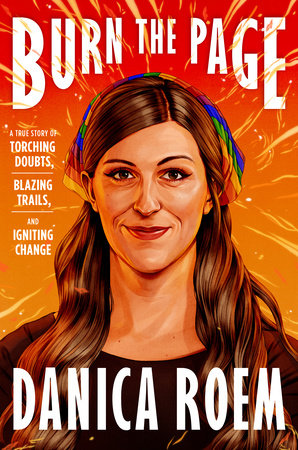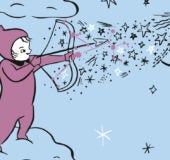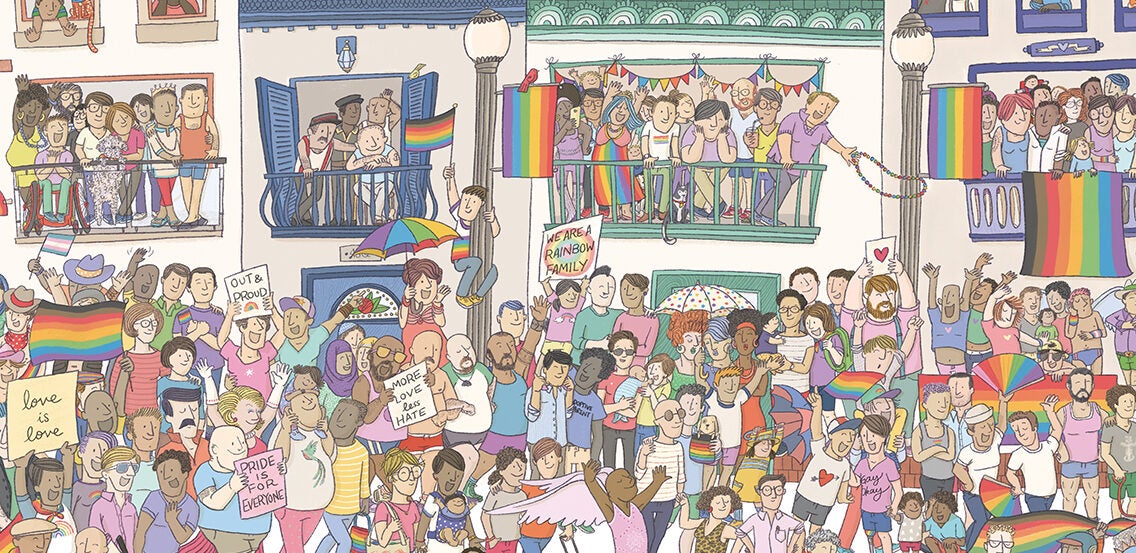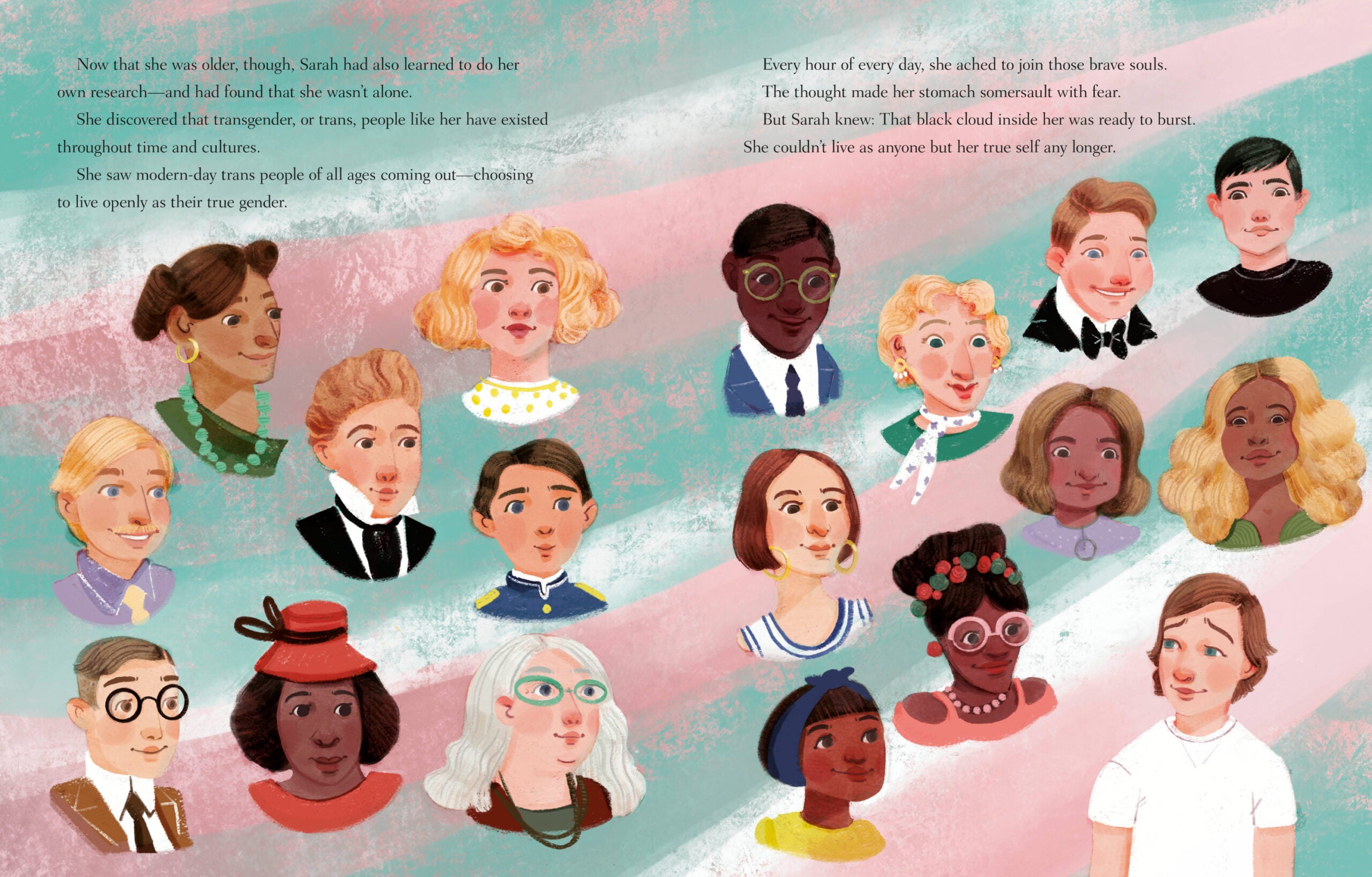Chapter 1
Loser
Danica Roem was born September 30, 1984.
She received an undergraduate degree from St. Bonaventure in 2006. . . . She either lives with her mother or does not live where she claims to live, which would be potentially illegal.
-Friends of Danica Roem self-opposition research for 2019, conducted by Reger Research
On the night of November 5, 2019, I looked to my right and saw my partner standing over my right shoulder. I reached up for a kiss, and with the sultry, passionate exhale of a young Sassenach whose dream of seduction has finally been realized, I whispered, "I get to keep my health insurance."
At thirty-five, I achieved the fantasy of every progressive suburban woman in Trump's America: two more years of little to no co-pays to make up for my $17,640 salary. I had also just been reelected to the state legislature in Virginia. That was also a thing.
Having lived uninsured from August 27, 2015, until February 1, 2018, the allure of two more years of health insurance, which came with my new role as a state delegate, certainly captured my attention. In case you haven't had the experience, living uninsured in your early thirties can be . . . demoralizing. (But, ladies, remember what those same asshole powerbrokers who make it so that we're living uninsured say to us in the first place: "You should smile more!") You get to a point where you start wondering about the choices you've made that have led you to this point (for me, mainly choosing newspaper journalism as a career in the age of the internet).
Earning reelection also came with a side benefit: that it would continue to drive transphobic bigots mad over accusations like "Transgender Delegate Gets Transgender Prescriptions Paid by Transgender Taxpayers!" or some shit like that. ("I think the transgender taxpayers would be quite happy about that," says my transgender partner upon reading that sentence.)
On a much more macro level, though, winning reelection also punctured that last lingering bit of resentment left over from 2017: that I was a flash in the pan, that 12,077 people wouldn't be so dumb as to reelect a transgender metalhead reporter stepmom in 2019 after they'd see what a disgraceful heathen she'd be with power-heathen, perhaps, but certainly not a disgraceful one. Well, I guess there was some validity to that: only 12,066 people voted for me the second time (I knew I should have knocked on doors in Mulder Court and Scully Court in Manassas one more time . . .) for a voter retention rate of 99.9 percent-and that was without any statewide candidates at the top of the ticket to drive up turnout. That's 'cause your girl ran a reelection campaign that roughly boiled down to "Danica 2019: I did a good job. Please vote for me to keep doing a good job."
he reason I ran for office in the first place is because . . . well . . . I was asked. A couple of times. Data from Emerge America-an organization that trains Democratic women to run for office across the country (and one of the organizations I trained with to prepare for my run)-shows that women are more likely to run for office after being recruited to run, while men are more likely to take the initiative to run. While thatÕs certainly not universal, it just so happened to pan out in my case, if for no other reason than to make the heads of transphobic bigots explode.
There were a lot of reasons that ultimately led me to declare my candidacy, but suffice it to say that my "Oh, hell no" dismissiveness toward the idea took some time to thaw. The first person to ask me to think about running was James Parrish, who led the LGBTQ rights organization Equality Virginia (EV) in Richmond. He asked me about it in February 2016, when I drove down to the General Assembly four times in just over a month to advocate against anti-LGBTQ bills.
I had never been involved with activism before this point. Getting involved to actually advocate for an issue instead of just covering other people doing it for the newspaper made me feel uncomfortable as hell in that I never wanted my neutrality as a reporter questioned. At the same time, I also felt like I was in a unique position to actually connect with some of the Republican legislators and win their votes because I knew them after covering them as a reporter for years. Yet to throw another curveball into the wind . . . most of
those legislators hadn't seen me in person since I changed my name, corrected the gender marker on my legal documents, and left the Gainesville Times half a year earlier. After almost a decade of the neutrality I'd held as a journalist, I knew I wanted to get involved at this level and I had some hope that I could convince a few legislators not to fuck over my life and the lives of their trans constituents. Yet by the time I would leave the capitol, I would just collapse in my car, usually with a pulsating headache and an occasional vomit on the side of the 9th Street. That, as you'll find out later, became a recurring theme for how my body processes anxiety: via explosive and-well, let's go with messy-catharsis.
Anyway, I had stopped by James's office on one of my trips down to talk and coordinate because I didn't want to step on Equality Virginia's toes and duplicate efforts. We knew then-Gov. Terry McAuliffe would veto any of these anti-LGBTQ bills and we just barely had the votes to sustain any veto in the state house. Still, we both had a larger mission: kill the bills before they even reached the House floor, which we managed to do with seven out of nine of them, leading us to run out the clock on one bill and Governor McAuliffe to veto the remaining one live on the radio during WTOP's "Ask the Governor" segment. We considered it a win-win: the bill didn't go through, and it functioned as a warning to the other anti-LGBTQ bills not to enter the governor's office. When James and I started talking about Bob Marshall's anti-LGBTQ bills, that led to a conversation about the 2017 election.
"Why don't you run?" James asked me.
It was the first time anyone had asked me to run for office, that day in February 2016-and I ruled it out because the 2015 Democratic nominee for the same seat, Don Shaw, was preparing to run again.
But still the question sat there. I don't know how to describe it exactly other than to say that someone asking me to run for office felt like a giant steel gate had materialized in the middle of my life path. It suddenly loomed over everything I was doing and why I was doing it. I could say no and the gate would lift; I would go on with my life as it was. Saying no is easy in that way. No is comfortable; it delivers you right back to where you were. You know what you're getting when you say no; life is predictable, knowable. It's like never making it past your freshman year's "Iron Man," "Crazy Train," and "Enter Sandman" mixed tape because God forbid you might find out Black Sabbath, Ozzy Osbourne, and Metallica wrote songs you don't hear on FM radio.
But what was that, exactly?
I'd just taken a job as a reporter at the Montgomery County Sentinel, a newspaper in Maryland, mostly so I could be closer to my partner and stepdaughter who both lived in that county. After all, nothing says commitment and love like a forty-eight-mile commute from Manassas in D.C.-region traffic. This at least gave me the option of occasionally spending the night up there when I didn't have band practice or other obligations back home. After the first eight or so months of that job, in which I had a brief refreshed feeling after a few investigative pieces, I started to stagnate again. By June 2016, I had been building my career as a journalist for ten years and was burning out. My enthusiasm was dipping, along with it my mood and my self-esteem. I had loved this career, but it quite simply wasn't panning out. It's hard to be excited about a career that's left you wondering how you're going to afford your bills after a decade of doing it. You don't have to be a financial wizard to know a career in local journalism won't make you rich, but it was bad-I just wasn't able to support myself or my family or even properly take care of myself without working two full-time jobs.
As a result, I caught myself citing the minimum number of sources I needed to get the story through editing while also being flippant in defending my writing. My boss, however, could see right through my bullshit and would call me into his office to tell me in no uncertain terms that my story sucked and I needed to write it over again. That's what happened with a front-page investigative story about water infrastructure that quite literally brought me to tears when I saw all my shortcomings unfold before my eyes while we were on deadline. My half-assed work was jeopardizing the production of that week's paper and I had to fix it fast. In the end, I got my shit together and, despite my moping and insufferable self-pity, it was a great piece, complete with a memorable headline from a local mayor about why voters and politicians alike often don't prioritize water infrastructure repairs: "It's not sexy."
By the time that water infrastructure series was published in September 2016, my activism in Virginia had expanded beyond Richmond and into my home community of Prince William County, all while I considered a run for office. Of course, I had to make sure my activism in Virginia didn't conflict with my reporting and editing work in Maryland, so I had to at least stay issue-based instead of partisan. Still, my focus at this point in my life was drifting much more into my goals as an activist. I had become intent on plotting how to get the Prince William County School Board to revise their nondiscrimination policy to include sexual orientation and gender identity. We had the representation-we had five Democratic-endorsed members on the school board out of the eight elected members, so we had a pro-equality majority in theory-but we hadn't locked down their votes yet. The Democratic Party that I knew from growing up wasn't a shoe-in for LGBTQ issues. In previous decades they had been, at best, somewhat less awful on these issues, but present-day levels of progress were unthinkable even just a few years ago. So I knew that I couldn't take for granted their support of the policy change.
So I spent every shift at the Afghan Kabob House, washing trays and filling tzatziki containers, plotting how to earn those five votes. At that point I wasn't really thinking about what this policy change would mean to me personally as an adult or what it would have meant to me as a kid or even whether it would have made my own childhood easier. As a thirty-two-year-old journalist and food delivery driver, the policy wasn't for me, so I never applied any special meaning to it beyond wanting it to be easier for LGBTQ school staffers and students to be themselves and come out without getting hurt emotionally or physically. For the kids in Prince William County schools, I knew it would be a big deal as a statement of affirmation that they belong. That's something LGBTQ kids in the '90s just didn't have any expectation of whatsoever in Virginia schools. Whatever energy I might have put toward really digging in on my reporting for the Sentinel beyond the basics was being high-beamed at this issue as I obsessively crafted rebuttals toward opposition arguments, dismantling them one by one.
I spent my lunch breaks at my kebab job sitting near the window, phone in hand, notepad on the table, furiously planning and making calls between bites of falafel and jasmine rice dotted with carrots and raisins. While that focus made those lonely kebab shifts less soul-sucking, every loss or possible setback felt all the more damning in my life, especially as my activism coupled with my two jobs and my band meant I was barely seeing my family at all. So in some sense, that big question-running for office-causing total disruption to my life was coming at the exact right time. Earlier that year in Richmond when James asked me about running, I didn't think Prince William County voters would be ready to elect a trans woman for at least a few more years. After all, Bob Marshall and a number of social conservatives in the House of Delegates and Board of County Supervisors still represented Prince William County. No one had seemed willing to hire me for more than a part-time gig, so how was winning an election going to go?
Also: I was poor! Poor people didn't run for office, or at least not successfully, I thought. How the hell is someone who's uninsured, driving a rusty-as-junk (yet super effin' sweet) '92 Dodge Shadow going to be able to afford to run for office, let alone against a thirteen-term incumbent who just got reelected by 12 percentage points a year prior?
Then things started to change. I'd been advocating all spring and summer for the school board's nondiscrimination policy when the Pulse nightclub shooting happened. I was a blubbering mess. I couldn't face customers at the kebab restaurant, but I also didn't want to be alone. I ducked out of a shift to be part of the Pride festival in D.C., where an otherwise festive atmosophere had a cloud of mourning hanging over it, as evidenced by one man I saw holding a Pride flag with a black ribbon drawn on it making a lot of new acquaintances as people approached him to express a sense of solidarity. Personally, I needed that moment just to know someone else-or, in that case, a lot of someone elses-got it. My grief at least then felt more communal instead of lonely, which made it easier to process.
Well, little did I know the school board chairman I had been working with all year on the policy change, Ryan Sawyers, declared immediately after the massacre that the school board would be voting in a few months on the nondiscrimination policy change. I remember thinking, "Well, shit . . . here we go," as I quickly realized we were moving ahead without having the votes locked down. That meant I needed to accelerate my timeline for ensuring my whip count tallied five members. So, being as bluntly direct as you'd expect from an extroverted reporter with Sicilian blood, I showed up at a school-renaming ceremony and approached every Democratic-endorsed member of the school board, asking them for their vote. All four of my swing votes said yes, with Potomac District member Justin Wilk telling me to make sure advocates for it would "pack the house" at the first hearing. Giddy with glee, I reported to Ryan Sawyers that we had the votes so, here we go, let's get it done. I was elated, suddenly full of purpose and/or caffeine. We had all five! Could I get a Republican on board maybe? I could see one or two coming around to it and I ended up talking to two of the three of them for a good while, though neither would commit. While I knew I was personally making a difference in terms of my aggressive pursuit of the policy change after months of working behind the scenes with both Ryan Sawyers and Don Shaw-the former being the school board chairman and the latter being the father of an out gay son as well as my aspiring political mentor-I really didn't care about that aspect. I just wanted to get the job done. It was the single most important thing I had in my life outside of family at that point because it would mean a holistic change in how my lifelong home county actually treated LGBTQ people.
Copyright © 2022 by Danica Roem. All rights reserved. No part of this excerpt may be reproduced or reprinted without permission in writing from the publisher.












